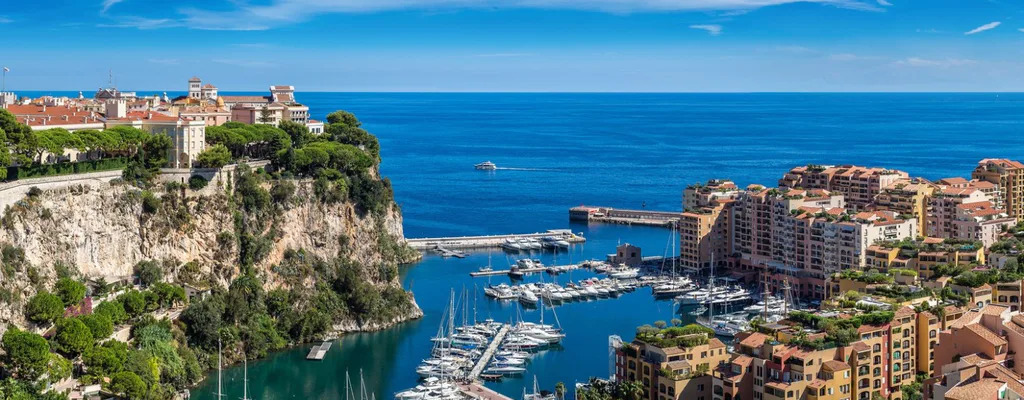CULTURAL HERITAGE: THE GREAT RESERVOIR OF MANKIND’S MEMORIES
by Silvana Rivella
MONACO. For 2019, which is approaching, an important agreement between the representatives of the Council and the European Parliament has continued the set up the 2018 European Year of Cultural Heritage. The idea was first raised in 2014, when the Council mentioned it in its conclusions on participatory control of cultural heritage, which includes heritage inherited from the past in various forms and aspects. It includes monuments, sites, traditions, knowledge and expressions of human creativity, as well as collections preserved and managed by museums, libraries and archives. The initiative aims to raise awareness of European history and values and strengthen the sense of European identity. At the same time, it draws attention to the opportunities offered by our cultural heritage, but also to the challenges it faces, including the impact of digital switchover, environmental pressures and physical constraints on heritage and cultural heritage trafficking. The European Year will have a specific budget of EUR 8 million. Representatives of the European Parliament will be able to participate as observers in the meetings of the national coordinators convened by the Commission for the organisation of the European Year. The main objectives of the European Year are to promote cultural diversity, intercultural dialogue and social cohesion; stresses the importance of the role of cultural heritage in the EU’s external relations, including conflict prevention, post-conflict reconciliation and the restoration of destroyed cultural heritage.

Well, to say that the world owe a lot to ancient countries like Greece is nothing new. Everywhere we look, we see echoes of that world in our own: democracy, philosophy, art, architecture, science, sport, to name but a few. Therefore, it looks right that HERITAGE, the only NGO that works on the capacity building of heritage organizations of any kind, be born in Greece, in its the capital Athens.
The Heritage Management Organization (HERITAGE) was established in November 2008 with start-up funding from Lloyd.E. Cotsen, founder of the Cotsen Institute of Archeology, in Los Angeles, California – USA, who sadly passed away on May 8th 2017. The Cotsen Institute of Archaeology at UCLA is a premier research organization dedicated to the creation, dissemination, and conservation of archaeological knowledge and heritage.
As for HERITAGE, the Organisation is celebrating its eleventh anniversary on the approaching year 2019 with an expansion of its projects and the scholarships it offers for heritage managers from around the world. HERITAGE’s headquarters are in Elefsina, the Athenian suburb that stands out for its special cultural identity. Inhabited for more than 4000 years, Elefsina was one of the most important religious centres that established the rituals of Eleusinian Mysteries around the 6th century B.C.. Today, the Eleusinian Mysteries can be seen and studied in the fresques in the “Villa dei Misteri” ( the Mysteries’ Villa) in Pompeii, Italy. In the recent years Elefsina maintained its importance and flourished as an exemplar and pioneer industrial centre that gathered workers from the wider Greek area, as well as the refugees from the Minor Asia. This cultural amalgam forms nowadays a unique landscape of oppositions and unifications. HERITAGE is privately funded and independent of any governmental authority and its mission consists in recognizing the value of human heritage as a driving force behind civilization’s finest aspirations and collective conscience. Heritage was founded with the goal of enabling key heritage managers, through targeted training, to independently transform heritage assets from decaying objects of study to dynamic sources of learning, community identity and economic development. The Heritage Management Organization trains professionals in the management of heritage sites, independently of project specifics. Training practitioners in the essential skills and best practices which define heritage management is at the heart of the HERITAGE mission. Since its founding HERITAGE has trained hundreds of individuals and organizations in more than 50 countries and is now on course to impact a quarter of global heritage hotspots by the year 2025. HERITAGE runs an Executive Education series for practitioners with a minimum of five years experience, summer field schools for senior students and junior practitioners and an MA Heritage management training both current and future heritage managers. Collaboration is a basic tenet of HERITAGE. Besides weaving an invaluable global network among participants, collaborative programs generate great dynamics, potential and opportunities. Thanks to supporters and members, the Organization has become a catalyst for change, bringing partners from around the world together and creating research or education programs that are essential for their heritage projects worldwide. The main pillars are transparency, collaboration and sustainability. In order to ascertain the quality of academic decisions regarding the MA in Heritage Management, HERITAGE established an international academic committee of the highest quality.
Under the direction of Dr. Evangelos Kyriakidis,  Director HMO, Senior Lecturer for Aegean Prehistory, University of Kent, and beyond the Architectural Conservation Laboratory, situated at the Athens University of Applied Sciences, the Scientific Committee comprehends scientists such as Vassilis Ganiatsas, Professor of Theory, Philosophy and Practice of Architectural/Urban/Landscape Design, National Technical University of Athens; Aris Anagnostopoulos, Honorary Lecturer University of Kent, Director HMO Public.
Director HMO, Senior Lecturer for Aegean Prehistory, University of Kent, and beyond the Architectural Conservation Laboratory, situated at the Athens University of Applied Sciences, the Scientific Committee comprehends scientists such as Vassilis Ganiatsas, Professor of Theory, Philosophy and Practice of Architectural/Urban/Landscape Design, National Technical University of Athens; Aris Anagnostopoulos, Honorary Lecturer University of Kent, Director HMO Public.

Mike Corbishley, Honorary Senior Lecturer in Heritage Education University College London Institute of Archaeology, UK. Senior Lecturer MA Heritage Management, University of Kent-Athens University of Economics and Business, Elefsina, Greece.

Last but not least, we are particularly proud to take part to the European and World Heritage initiatives with our publishing Group Stucture’s reportages.





